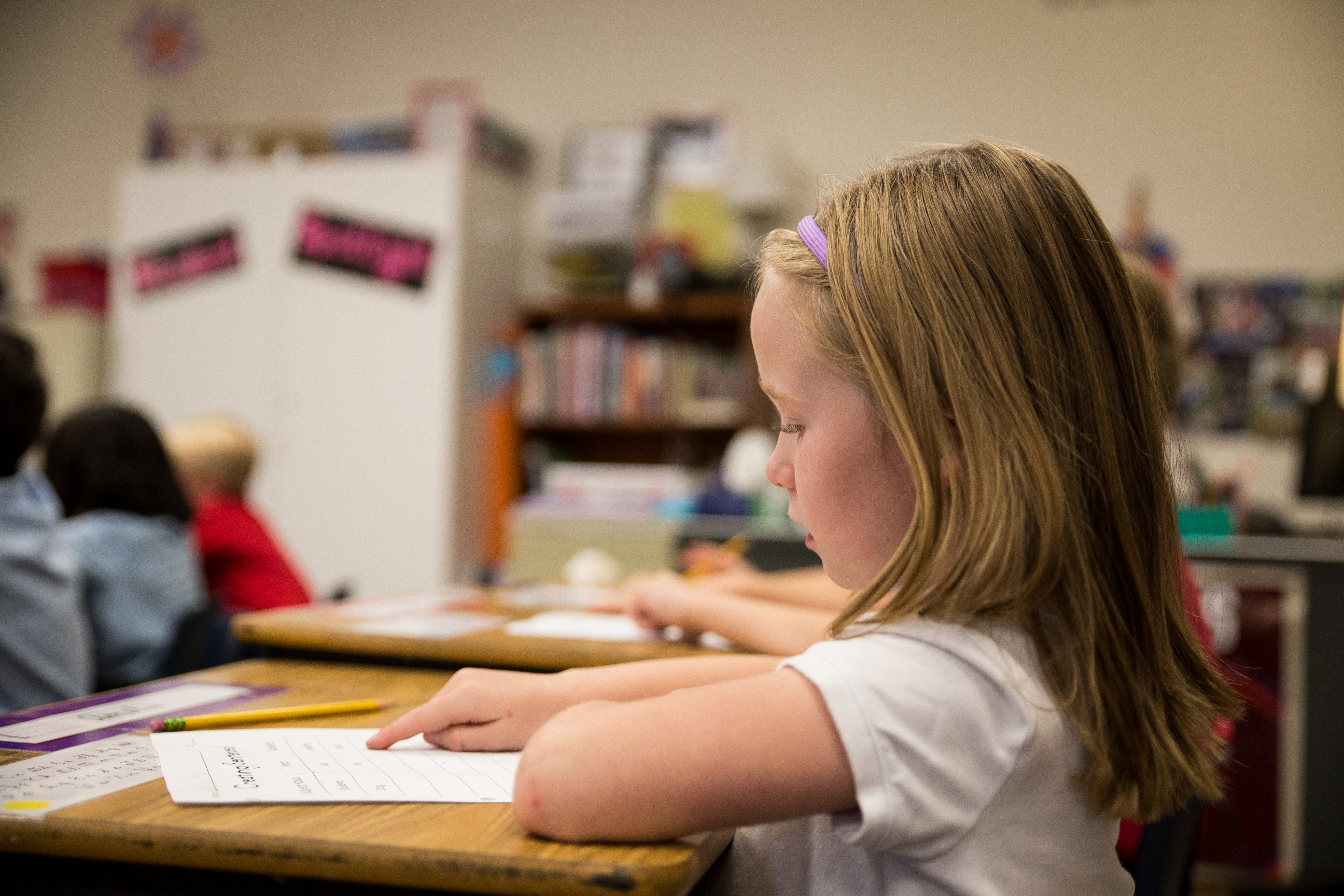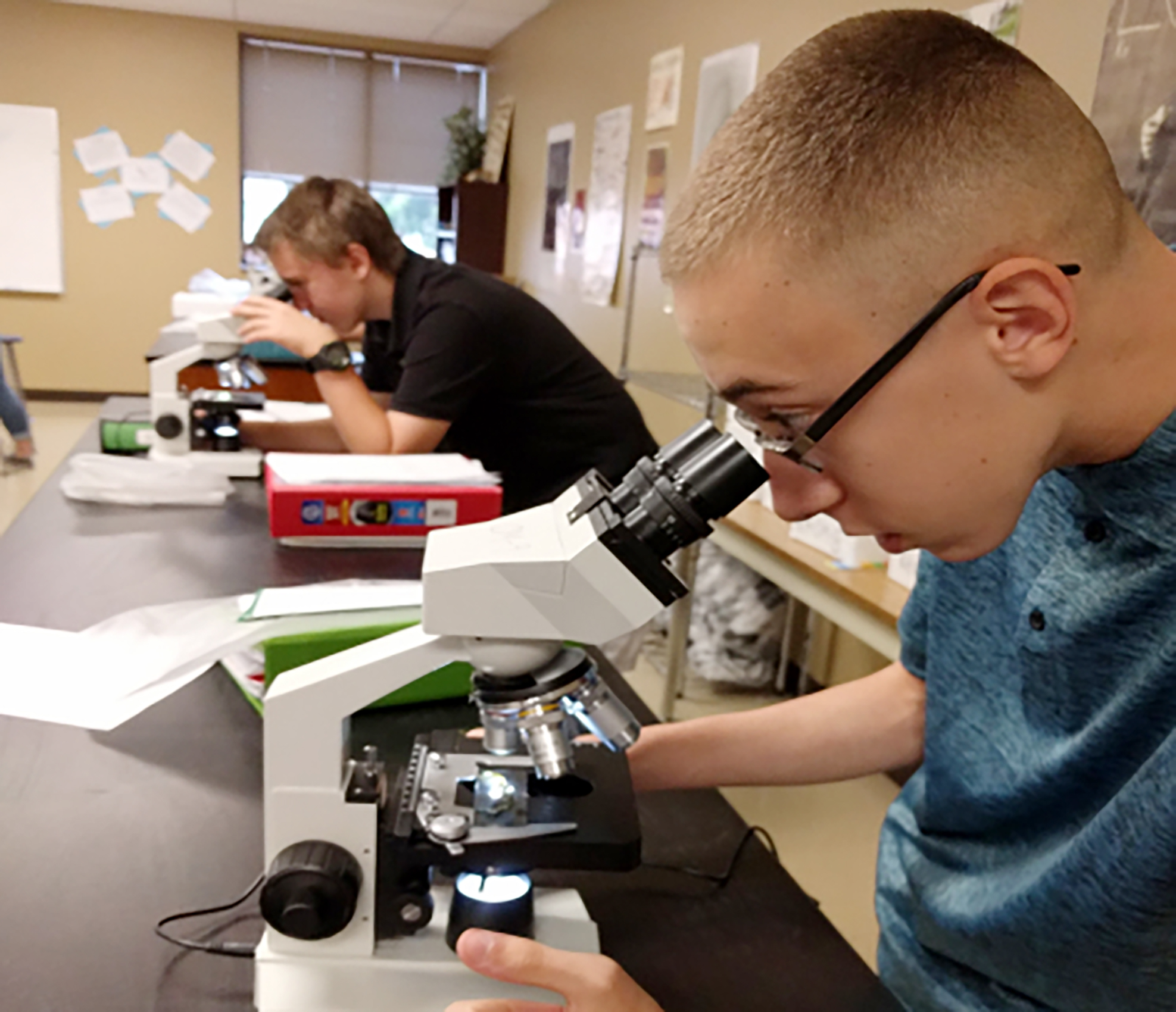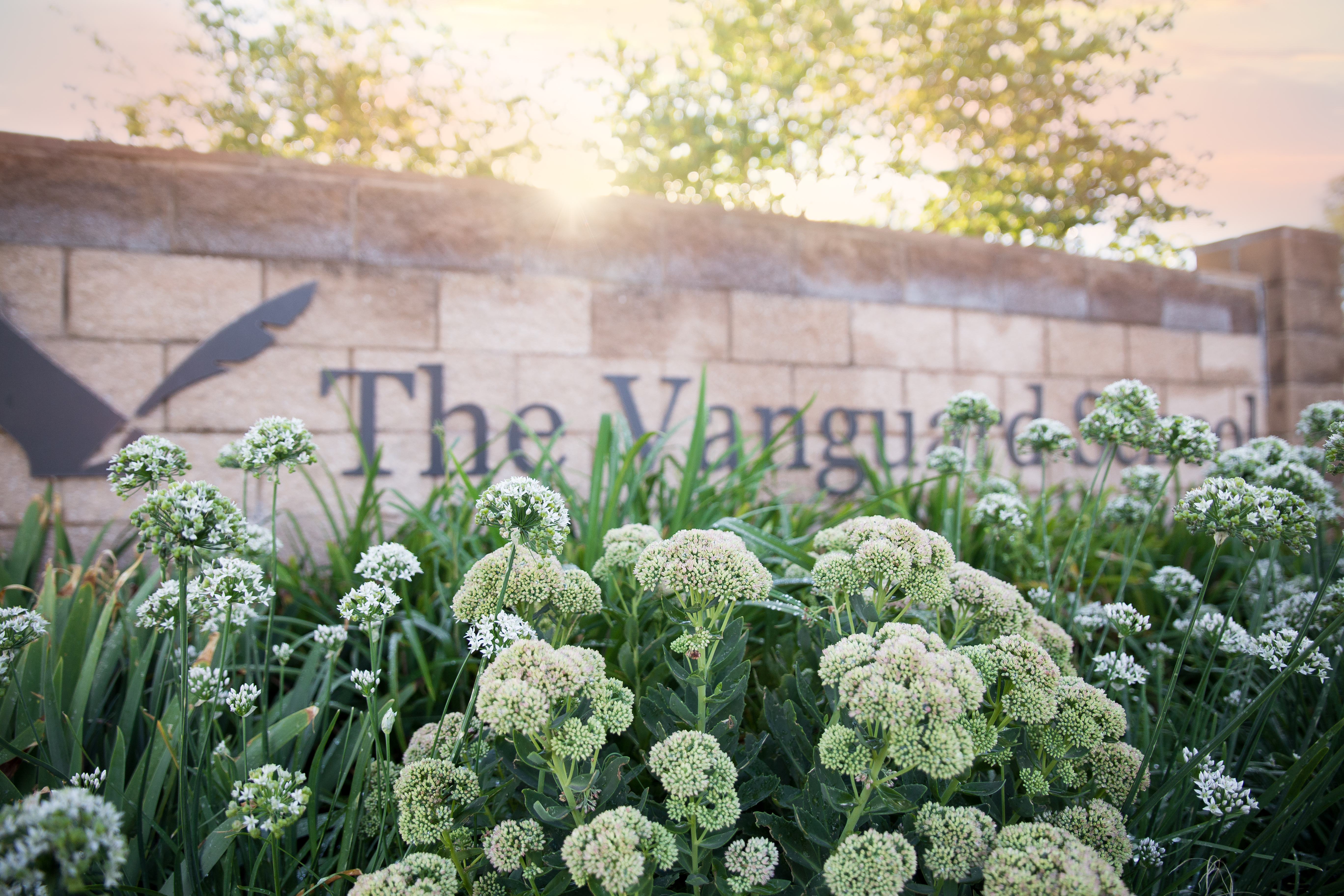
Classical education is an approach to learning that takes the whole individual into context. It teaches students how to learn and use reason to ultimately make informed decisions later in life. This whole-person approach is accomplished by introducing disciplinary themes among the backdrop of history.
So while a student is learning to sift through historical events, they can integrate concurrently evolving theories and facts in mathematics, science, the arts, and literature. Knowledge of one subject always has a connection and role to play in another subject.
The difference between classical education and curriculums often found in traditional public institutions is the importance placed on the act of learning. Classical education strives to develop a student into a disciplined and robust thinker able to parse information, ask essential questions, and ultimately form their own well-reasoned opinions and contributions to the Great Conversation of humanity.
Students in a classical education curriculum learn that the point of education is the learning itself, and the immense amount of effort and discipline that goes into it. Focus and dedication are required to learn any specific skills. Likewise, learning how to think, form arguments, and make conclusions based on well-substantiated evidence is an invaluable skill for navigating life’s great journey.

What Makes Classical Education So Effective?
The number and variety of educational institutions adopting classical education methodologies are consistently growing because of the quality of student who graduates these programs. Additionally, college attendance rates amongst graduates are typically higher as well.
The focus on education for the purpose of developing wisdom and virtue in each student is not a new concept. It is an idea that has been spreading beyond traditional private schools and into charter schools for the last few decades.
Classical Education Methodology & Curriculum
Classical education focuses on the interconnectedness of different subject areas while establishing a foundation in learning, and building on that foundation as students mature and progress. Generally, most institutions implementing a classical education approach the students learning with three phases that reflect the student’s needs and abilities.
The Elementary Phase (K-6)
Classical education begins with a strong foundation in the basic disciplines for the elementary age student. Children absorb key building blocks in grammar, reading, spelling, writing, and mathematics.
When they transition to the next stage, these young students have the fundamentals they need to start to organize information and ask important questions on their own. Students are exposed to the great works in literature, for example, but in a format that is greatly simplified, and appropriate for their level.
Junior High Phase (7-8)
In this phase, a classical education may consist of more investigative lessons of history, science, literature, and similar disciplines that are all interconnected by time and place. Students use the tools they acquired in the elementary stage to parse new information, identify patterns within a historical context, and draw independent conclusions.
High School Phase (9-12)
By this time, students have begun delving more deeply into subject areas. They have been able to organize information based on multiple categories that interconnect. During the high school phase, students learn the importance of knowledge by drawing their conclusions about our world. They make informed arguments and support their arguments with a wealth of foundational knowledge.
Benefits of a Classical Education
Developing Virtue
Through a graduated in-depth approach to the evolution in thinking across multiple disciplines, classical education allows the student to absorb and adopt many of the themes that ribbon through time and place in learning. One of the most important of these themes is virtue.
Virtue can be described as knowledge of, and the ability to, adhere to what is morally right. Classical education equips the student with the strength and discipline to continually learn and draw lessons throughout his/her life beyond formal education. Students become adults who use their solid sense of virtue to inform future decisions and contribute to the Great Conversation.
Finding Reward in the Effort
Education is not just about setting a student up to get admitted to a decent college. Nor should it be looked at as a game to play – a slurry of GPAs, test scores, extracurricular, and service hours that serve as bullet points on a college admission application. Education should be about finding reward in the very effort of learning itself.
Understanding the evolution of the human condition via a historical multi-disciplinary approach is crucial to future personal development. Likewise, the effort required to learn, incorporate, and analyze these essential lessons in itself is a gift that can be applied to any particular future endeavor.
Contributing to the Great Conversation
Many popular forms of curriculum produce educated individuals. But only a specific portion of those individuals can genuinely contribute to the Great Conversation — the ability to make new conclusions and offer opinions about the human condition based on previous works authored by writers, thinkers, philosophers, scientists, and other intellectuals recorded throughout time. Classical education works to develop the mind, body, and soul of each student so that they do not just pass through life; instead, they contribute to it.
What to Look for in a Classical Education Charter School
When considering enrolling your child in a classical education charter school, it is important to look for key indicators that students will receive the education that is being advertised. While all institutions using a classical approach will naturally vary in the delivery, the fundamentals of classical learning should be easily identifiable:
- A classical approach is incorporated into the curriculum at all stages of learning.
- Historical works in a variety of disciplines are presented to the student at an age-appropriate level.
- Character, virtue, and wisdom are key attributes that serve as goals for learning.

Classical Education at The Vanguard School
The Vanguard School embraces these fundamentals and many other essential characteristics of classical learning to produce deep thinking, well-rounded individuals able to evaluate contemporary issues based on historical knowledge.
Is Classical Education Right for my Child?
Choosing a classical education curriculum requires considerable contemplation. It is a decision best made with first-hand knowledge of the specific school you are interested in having your child attend, whether that be a private school or a charter school. We strongly encourage scheduling an interview with admissions and touring the school before making any decision.
